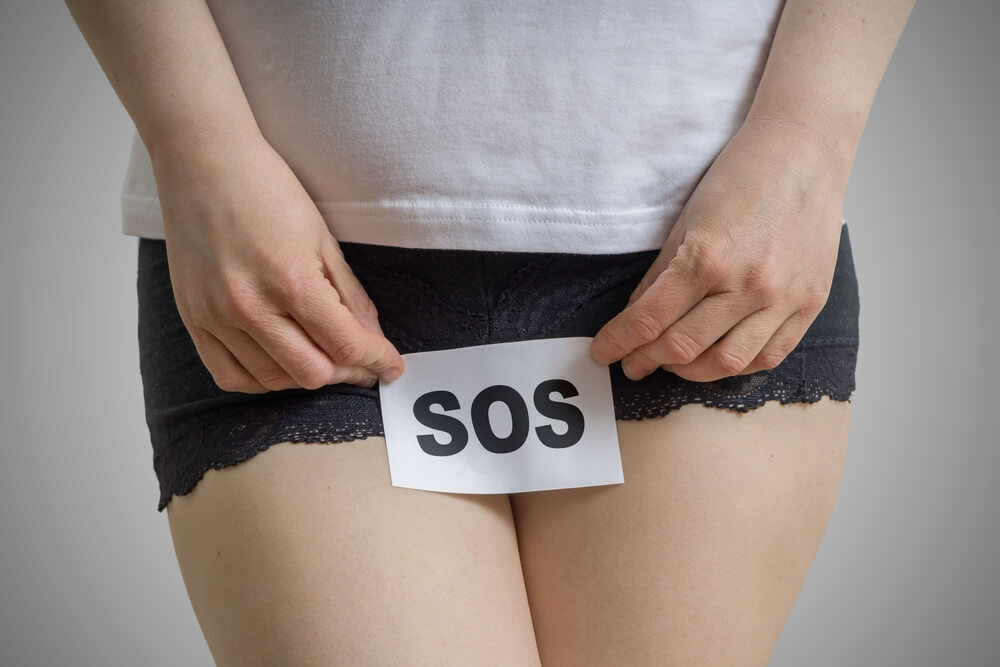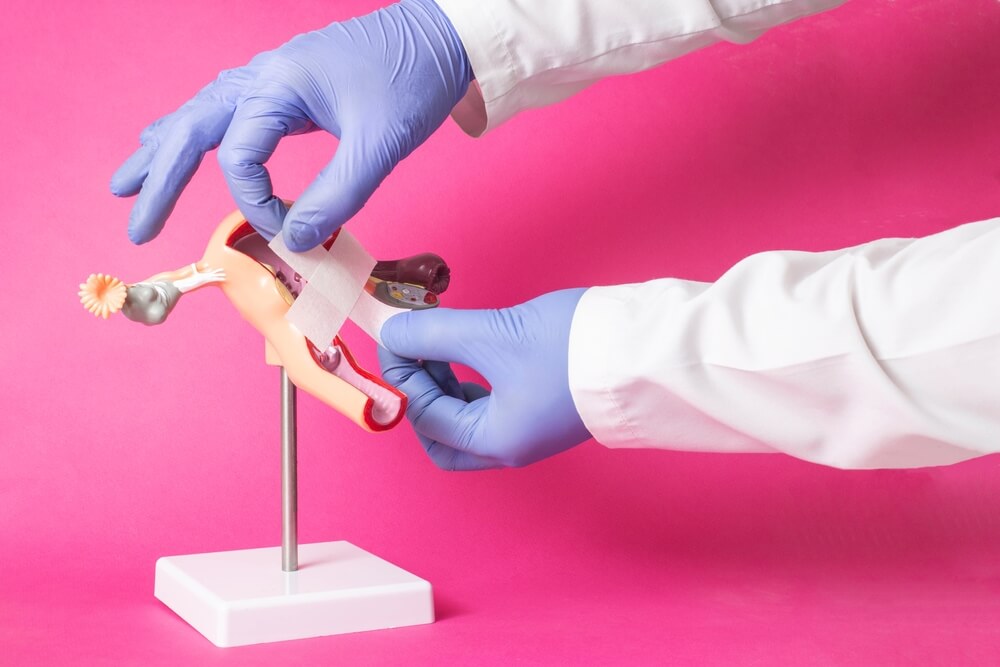Vaginal dryness is a common yet often overlooked concern among women, impacting not only physical comfort but also overall well-being. In this comprehensive guide, we will try to get into the intricacies of vaginal dryness, exploring its causes, symptoms, and a range of treatment options to help you regain confidence and comfort.
If you are struggling with a dry vagina, you will need to address this issue with a gynecologist in Plantation, Florida. Making a correct choice of doctor is paramount for your overall well-being, so choose medical centers such as Broward Complete OB-GYN Wellness Center, which are fully equipped and employ high-quality staff.
Vaginal Dryness 101

Vaginal dryness, a prevalent concern of many women, involves the insufficient lubrication of the vaginal walls, impacting comfort and overall well-being. Hormonal changes, particularly during menopause, often trigger this condition as declining estrogen levels affect the vaginal tissues. Beyond menopause, medications, stress, and anxiety can also contribute to vaginal dryness. Recognizing symptoms such as itching, discomfort during intercourse, and an increased susceptibility to urinary tract infections is essential for early intervention.
Fortunately, numerous treatment options exist, ranging from hormone replacement therapy to over-the-counter moisturizers and lubricants. Lifestyle modifications, such as staying hydrated and incorporating phytoestrogen-rich foods, can also play a pivotal role. Understanding the nuances of vaginal dryness equips individuals to address this issue comprehensively, fostering physical comfort and emotional well-being.
Causes of Vaginal Dryness
Vaginal dryness can be attributed to a variety of factors, with hormonal changes standing out as a primary cause. Here are the most common causes, discussed in more detail:
- Hormonal Changes: Hormonal changes represent a significant contributor to vaginal dryness, especially during key life stages such as menopause. Menopause marks a natural decline in estrogen levels, a hormone crucial for maintaining the elasticity and moisture of the vaginal tissues. As estrogen decreases, the vaginal walls may become thinner, less elastic, and more prone to dryness.
This hormonal shift not only affects sexual comfort but can also lead to other symptoms like itching and discomfort. Hormonal changes can also occur during breastfeeding and perimenopause, amplifying the likelihood of experiencing vaginal dryness. Understanding the intricate interplay between hormones and vaginal health is fundamental for individuals navigating this aspect of their well-being.
- Medications: Certain medications can inadvertently contribute to the occurrence of vaginal dryness, adding a layer of complexity to this common concern. Antihistamines, commonly used to alleviate allergy symptoms, and certain classes of antidepressants are notable examples of medications known to have the side effect of reduced vaginal lubrication.
These drugs can impact the body’s natural hormonal balance and interfere with the mechanisms responsible for maintaining optimal moisture levels in the vaginal tissues. It is crucial for individuals taking such medications to be aware of potential side effects and to communicate openly with their healthcare providers.
- Stress and Anxiety: Stress and anxiety, pervasive elements of modern life, can significantly influence vaginal health and contribute to the occurrence of vaginal dryness. The mind-body connection plays a crucial role in hormonal balance, and chronic stress can disrupt this delicate equilibrium. High stress levels may lead to an overproduction of cortisol, a stress hormone, which, in turn, can interfere with the body’s estrogen production.
Estrogen plays a pivotal role in maintaining the health of the vaginal tissues and ensuring adequate lubrication. Consequently, persistent stress and anxiety may indirectly contribute to dryness, discomfort, and irritation in the vaginal area. Incorporating stress management techniques, such as meditation, mindfulness, or yoga, can not only benefit overall mental health but also positively impact intimate well-being, helping to mitigate the effects of stress-induced vaginal dryness.
Vaginal Dryness Symptoms
Recognizing the signs of vaginal dryness is paramount in seeking timely intervention. Common symptoms include:
- Itching or burning sensation
- Discomfort or pain during intercourse
- Frequent urinary tract infections
- Light bleeding after intercourse
- General irritation and discomfort
The Impact of a Dry Vagina
The impact of a dry vagina extends beyond mere physical discomfort, influencing both the emotional and interpersonal aspects of a woman’s life. Physically, vaginal dryness can result in itching, burning sensations, and pain during intercourse, potentially leading to a decreased interest in sexual activity. These physical discomforts can, in turn, contribute to emotional distress, affecting one’s self-esteem and body image. In intimate relationships, the repercussions are notable, as communication about this sensitive issue becomes essential.
Open dialogue fosters understanding and support between partners, crucial for maintaining a healthy and satisfying sexual connection. Addressing the impact of a dry vagina comprehensively involves not only finding effective treatments but also recognizing and addressing the emotional and relational dimensions, promoting overall well-being and quality of life.
How to Treat Vaginal Dryness?
The question of how to treat vaginal dryness is quite common in patients who are struggling with this condition. Here are some pieces of advice that can help you mitigate this condition, or at least attempt to:
- Hormone Replacement Therapy (HRT): Hormone Replacement Therapy (HRT) emerges as a transformative intervention for managing vaginal dryness, particularly in women experiencing menopause or other hormonal imbalances. HRT involves supplementing the body with estrogen, the hormone responsible for maintaining the health and elasticity of the vaginal tissues.
By restoring estrogen levels, HRT effectively addresses the root cause of vaginal dryness. This therapy comes in various forms, including pills, patches, creams, or vaginal rings. While HRT can significantly alleviate symptoms and improve the overall quality of life, it is not without considerations.
- Moisturizers and Lubricants: Over-the-counter moisturizers and lubricants provide instant relief by replenishing lost moisture. Regular use can help manage dryness effectively.
- Lifestyle Modifications: Stay hydrated, maintain a balanced diet, and incorporate regular exercise to support overall well-being. These lifestyle changes can positively impact vaginal health.
- Phytoestrogen-Rich Foods: Include foods rich in phytoestrogens, such as soy products and flaxseeds, in your diet. These plant-based compounds mimic estrogen and can help alleviate symptoms.
Vaginal Dryness Treatment Options

When it comes to vaginal dryness treatments, fortunately, options are various and mostly available to all:
- Vaginal Estrogen Therapy: Localized estrogen treatments, such as creams or rings, target the affected area directly, providing relief without the systemic effects of oral hormone therapy.
- Pelvic Floor Exercises: Strengthening the pelvic floor muscles through exercises like Kegels can enhance blood flow to the pelvic region, promoting vaginal health.
- Vaginal Dryness Remedy: Natural remedies can complement conventional treatments. These involve aloe vera gel, known for its soothing properties and relief from irritation, and evening primrose oil, which helps balance hormones and alleviate symptoms.
Call Us!
Empowered with knowledge, addressing vaginal dryness becomes a proactive step towards holistic well-being. By understanding its causes, recognizing symptoms, and exploring diverse treatment options, you can reclaim comfort, confidence, and intimacy in your life. Don’t let vaginal dryness hinder your vitality – take charge of your health today.
Our expert staff is at your disposal for whatever you might need, so if you have any additional questions or you just want to speak to a medical professional, feel free to call us. Your health is our number one priority, and we are here for you!


